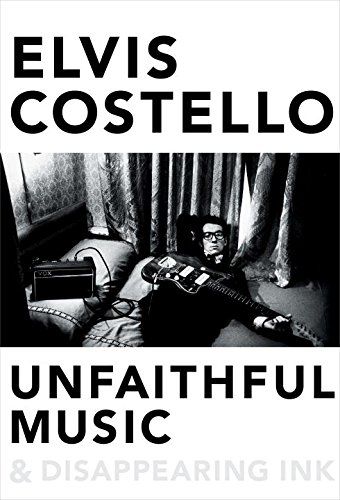 Hey real quick: just in time for Easter, I wrote a piece called "Let's Stop Overdoing It On the Holidays."
Hey real quick: just in time for Easter, I wrote a piece called "Let's Stop Overdoing It On the Holidays."
When I was in late high school through post-college I went through a thing where I was really super into Elvis Costello. I loved his music and his whole vibe which really tapped into a certain element of my personality, kind of bratty and moody and left-out yet clever-feeling. My old college roommates and boyfriend can attest that I was possibly-even-obsessed with him. No regrets about that--it's really fun to be that into a musician, especially at an age where music plays such a big part of your life.
Even though that period of my life, and hence my crush, is way behind me, I was still super-excited to read that Costello was releasing a memoir last year. I pre-ordered it the second I heard about it, plus anxiously hit "refresh," trying to get tickets to his appearance at the Chicago Humanities Fest. But maybe I shouldn't have done both, because seeing him and reading his book Unfaithful Music & Disappearing Ink I think officially killed my love. He's a very good writer and a convivial man in person--but in both cases maybe it's too much of a good thing.
The problem with Elvis is, he is very clever and he knows it, so it seems like he had a hard time editing himself with the book, which is nearly 700 pages long. The other problem is, and I say this as somebody who loves celebrity memoirs, he is too discreet. Not just discreet--coy. He often talks around the harder parts of his personal life, or alludes to them, or, most enragingly, includes allegories of them in old short stories he'd written long ago. Mr. McManus--either talk about that stuff or don't, but don't tell me what I'm missing.
The other thing is that he quotes his own lyrics--a lot. I wouldn't mind this if each time he did so he revealed more about the making of the song or what was happening in his life but not so much. So it's just lots and lots of lyrical quotes, which comes with a little scent of "I'm a pretty good lyricist, no?"
One other issue I have with the book is on the topic of racial sensitivity. Early in Costello's career he was quoted by a journalist describing Ray Charles by the n-word, which he repeatedly explained was when he was drunk and off-the-record, not that he (or I) felt that that was an excuse. But, he has been extremely lucky in his career--that incident is less than a footnote in his career and didn't tank him the way it would in today's world. I don't (and clearly his collaborators like Questlove or Allen Toussaint didn't) think Costello's a racist, but he's benefited from the sands of history sliding his way. Costello's a little defensive of the incident, perhaps tone-deaf to how well he has actually been forgiven by the public.
Then, in a later chapter, he discusses at length his relationship with Toussaint and the city of New Orleans. He becomes what I refer to as a Katrina-apropriator. Katrina was a horrible tragedy that exposed so many bad things in our society and government in a city so singular and special. That said, Elvis really wants us to know how much he felt Katrina, how sad and angry he was about it. I am positive he did not intend to do this but to me it rang of, "I told you I'm not a racist."
Anyway, I did read the whole book and found the parts of Costello's youth and home life and even his family tree interesting. I thought it was interesting that he talked so much about his father, understandable because he was also a professional musician with a somewhat public persona, while his mom got slightly short shrift.
While I was reading the book I went by himself to see Costello in conversation for the Chicago Humanities Festival. Have you ever sat at a dinner table with an older man and he pays for the drinks and orders food for the table and has the best stories to tell? It's fun to feel like you're in such good hands, that you're with an old-fashioned commanding guy. But then after awhile you realize he's been talking a lot. It was a little bit like that. Also, several times Elvis interrupted himself to jump up and read from his book, which was a little weird in its rehearsedness, but then again, a lot of the stories he told in conversation came directly from the book. He was a flawless book marketer. I found this a turnoff. "He certainly likes to hear himself talk!" said a woman behind me as we left the auditorium, and that summed it up exactly.
I've often wondered if it's possible to go back into your old musical crushes and re-live them and I don't think it is, probably because so often we discover musicians the same time we're discovering ourselves, two processes you can never go through again for the first time. You can re-engage with those crushes, the way I try to expose my boys to the Beatles (my first musical obsession), but you can't go back again. I'll always remember fondly how much it seemed like Elvis Costello's music spoke to me (even if it meant my roommates hated me for it) but this scenario reminded me of the saying "never meet your heroes"--or read their books, either.

Patrick
Love EC but am kind of not surprised. Hints of what you've identified have come through in TV interviews.
I love Joni Mitchell, too, but I think if I saw under the lid and experienced her as a person, my fandom would crumble into dust.